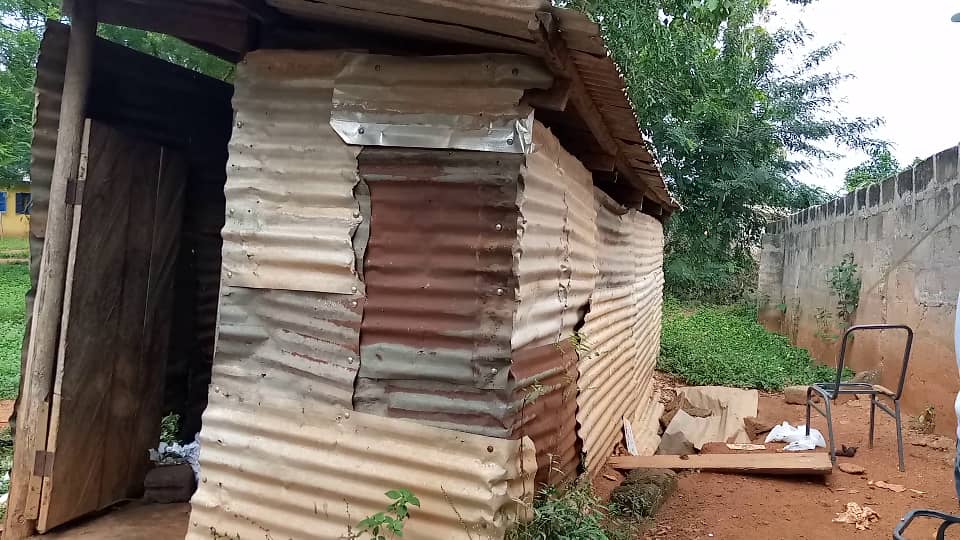Students of the Apegusu Senior High School, located in the Asuogyaman District of the Eastern Region, are calling on the government to help improve various infrastructural deficits in the school.
Speaking with journalists during a visit to the school, the students lamented that the inadequate classroom blocks, dormitories, lack of an assembly hall, poor toilet facility, poorly equipped ICT and science lab among others, are hampering effective teaching and learning in the school.
Beyond the teaching and learning challenge, the students expressed fears that the terrible state of the school’s toilet facility poses a threat to their health.
“We have a lot of problems in the school but will mention few: first our boys’ dormitory is in a bad state which is really not good for accommodation. The toilet too is really an eyesore and can cause a lot of health problems,” a male student revealed.

They further made known that in spite of the school lacking classroom blocks, the issue of inadequate desks has also worsened their plight since the sitting arrangements is a major challenge during classes hours.
A female student who expressed worry to the persistent menace said; “we also don’t have any sport field, so we are pleading on the government to come to our aid.”
However, a French teacher of the school cited water crisis on campus to be affecting the daily activities of students and teachers, not forgetting to draw attention to a major road that links the town to the school which has been left in a deplorable state.
He seized the opportunity and advised the Educational Ministry and other stakeholders to, as a matter of urgency, pay attention to schools situated in the rural areas to help bridge the gap between them and the urban schools.
Mankrado of Akwamu Adonten Traditional area in Apegusu, Nana Dedey Akwei II, adding his voice to students call, stressed that immediate response to the cry of the school is significant to enhance development in Apegusu and its environment.

The concerned people, thus appealed to the government, non-governmental organizations, individuals, philanthropists, and benevolent to attend to their needs to make teaching and learning easier in the district.








































































